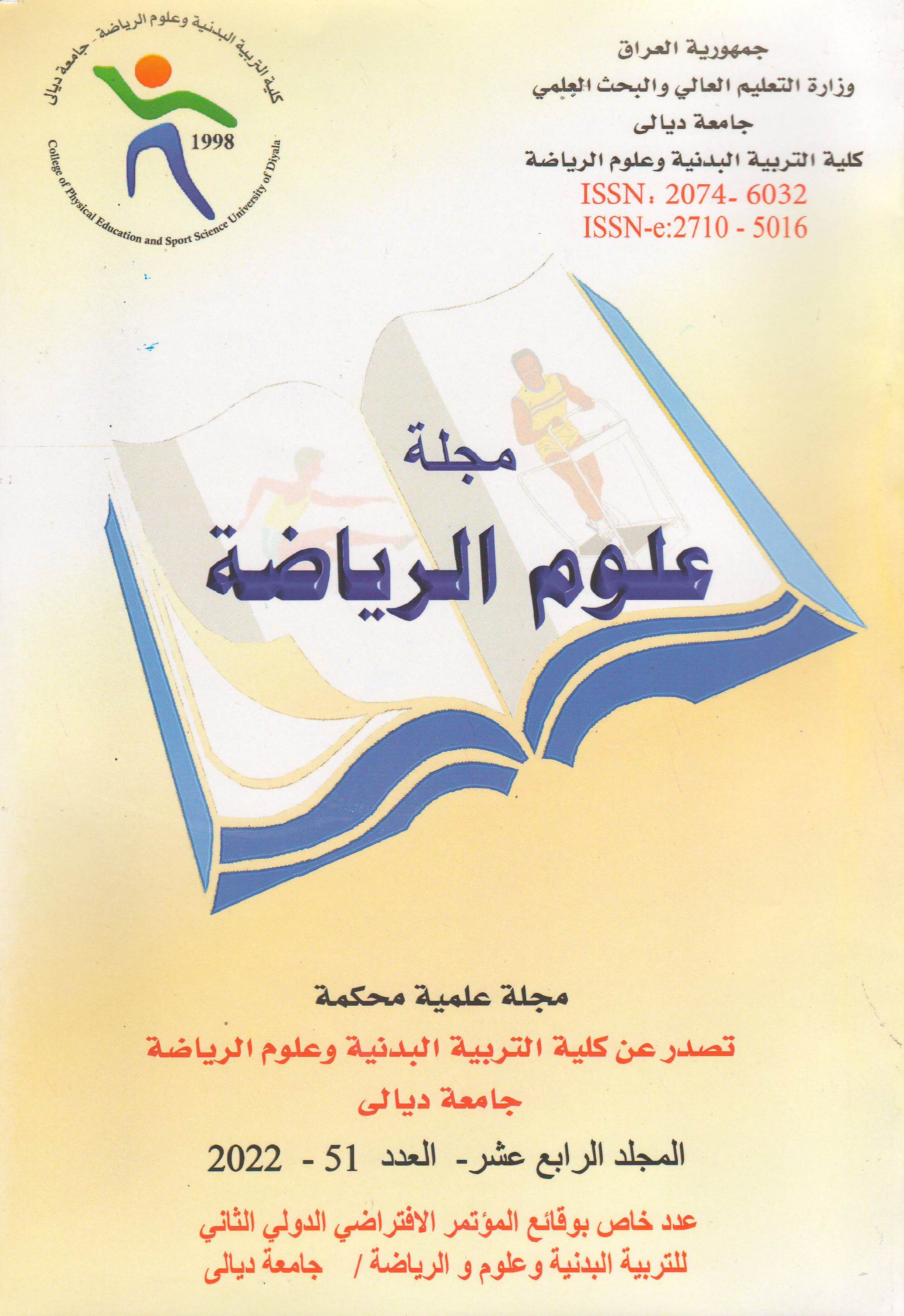Bullying and its relationship to self-confidence in Scouting Education for Female Students of the College of Physical Education and Sports Sciences
Main Article Content
Abstract
Bullying is a phenomenon with emotional, social and psychological
dimensions, and it is a general phenomenon in all societies. It dealt with the phenomenon of bullying among female students of the Faculty of Physical Education and Sports Sciences / the first stage in the subject of Scout Education and its impact on the level of teaching and lesson leadership by the student and her self-confidence. The problem of the study is the presence of cases of bullying in lessons in general among colleagues, which leads to the reluctance of female students to take their role in participation and leadership. As for the objectives of the study: and to identify the nature of the relationship between bullying and self-confidence among female students / first stage in the Faculty of Physical Education and Sports Sciences. The researcher used the descriptive approach using the survey method and correlational relations, as it is the most appropriate curriculum for the nature of the problem studied by the researcher. ) students, and for the
purpose of measuring the phenomenon of bullying, the bullying scale was built, which included four areas: verbal bullying, social bullying, physical bullying, emotional bullying, and emotional bullying. For the purpose of measuring self-confidence.
The researcher reached a number of conclusions :
Domains of bullying affect the student’s self-confidence, which is
negatively reflected on the level of learning the Scout Education subject and weakens her personality and leadership level. The emotional bullying field was the strongest relationship and influence on the students’ self- confidence during the Scout Education lesson for the first stage.
The researcher recommends: conducting a study similar to the current
study on other stages of study, and conducting studies and research related to university bullying and its relationship with skill variables for practical subjects such as team and individual games and for all stages.
Article Details
Conference Proceedings Volume
Section

This work is licensed under a Creative Commons Attribution 4.0 International License.
How to Cite
References
• Ahman, J.,Stanley; Measuring and Evaluating Educational Achievement, 1979, P182
• Eble, R, Essential of educational measurement 2nd edition, new York, prentice-Hill, 1972, p555
• Guilford, J.P. Personality. New York: McGraw-Hill, 1959, P.408.
• olweus, D. Bullying at school; What we know and what we can Do, Oxford; Blackwell. 1993, p. 93.
• أحمد سليمان عودة , وفتحي حسن مكاوي؛ القياس والتقويم في العملية التدريسية, ط2 : ( أربد، دار الأمل، 1998)
• أحمد محمد عبد الخالق ؛ استخبارات الشخصية : ( القاهرة ، دار المعرفة الجامعية ، 1993 (
• أسامة كامل راتب؛ تدريب المهارات النفسية، تطبيقات في المجال الرياضي، ط1، (القاهرة، دار الفكر العربي، 2000م)
• حمزة محمد دودين؛ التحليل الإحصائي المتقدم للبيانات باستخدام SPSS، ط1: ( عمان، دار المسيرة للنشر والتوزيع والطباعة، 2010)
• علي محمود شعيب، وهبة علي محمود شعيب؛ الإحصاء في البحوث التربوية والنفسية والاجتماعية ، ط1 : ( القاهرة , الدار المصرية اللبنانية , 2015)
• ليلى السيد فرحات. القياس والاختبار في التربية الرياضية، ( القاهرة، مركز الكتاب للنشر، 2001)
• محسن لطفي؛ قياس الشخصية: (القاهرة , المصرية الدولية للطباعة والنشر, 2006)
• محمد حسن علاوي ، محمد نصر الدين رضوان ؛ القياس في التربية الرياضية وعلم النفس الرياضي ، ط1 : ( القاهرة ، دار الفكر العربي ، 2000 )
• محمد حسن علاوي ومحمد نصر الدين رضوان؛ القياس في التربية الرياضية وعلم النفس الرياضي: (القاهرة، دار الفكر العربي،2000).
• مصطفى الإمام و(آخرون)؛ التقويم والقياس: (بغداد دار الحكمة للطباعة والنشر، 1990)
• ممدوح عبد المنعم الكناني وعيسى عبد الله جابر؛ القياس والتقويم النفسي والتربوي: (الكويت، مكتبة الفلاح للنشر والتوزيع)، 1995
